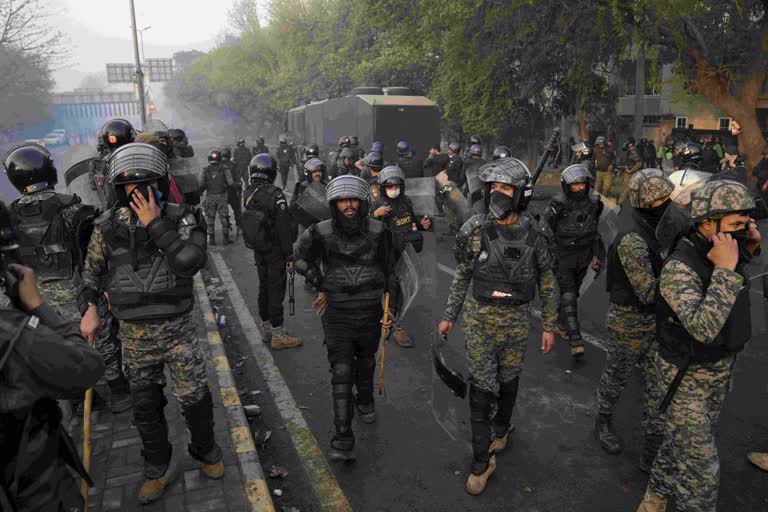New Delhi: Foreign diplomat warned of the geopolitical impact of Pakistan's political instability combined with the presence of terrorist elements. Although the Lahore High Court has temporarily suspended the arrest of former Prime Minister Imran Khan, the situation in Pakistan remains politically volatile.
Foreign policy experts are of the opinion that such an unstable situation combined with terror elements could be disastrous for neighbours including India as one would face refugees and ensuing violence and that might have a strong impact on the economy of the country.
"Pakistan is in a deeply serious situation economically and it is still premature to say that this is going to lead into a collapse because it is the question of time before the IMF steps in. When the IMF steps in others will step in. I think it would be rather premature to say that a civil war-like situation is emerging. We will have to see how the next harvest goes and how aid comes in," G Parthasarathy, former Indian high commissioner to Pakistan told ETV Bharat.
Parthasarathy explains that it is too early to predict the outcome of the situation, but he stresses that Pakistan is not the most loved country in the world at present. The expert adds that Pakistan's relations with the Taliban are bad, and other countries, including Iran and the Arab states, are withholding aid until the IMF intervenes.
"Pakistan will have to get the IMF issue sorted out which they say they are close to but they have been saying this for the last six weeks. So it is linked to what the IMF says. If IMF clears, the money will start flowing. I will wait for that. Pak today is not the most loved country in the world. We will have to wait and watch," he added.
He said that nobody in the world would enjoy seeing an unstable country with 130 nuclear weapons falls apart including the United States. Parthasarathy pointed out that India is going to keep quiet and nothing more. "The situation is not something we can control nor should we give them a reason to hold us responsible. Sri Lanka gets 4 million dollars and Pakistan gets zero".
Parthasarathy also points out that India is unlikely to get involved in Pakistan's situation, and the best course of action is to wait and watch. He explains that if India says anything negative, it may be accused of taking advantage of Pakistan's problems. Therefore, it is better to adopt a wait-and-see policy, and Pakistan's primary problem is no longer India, but its economy.
Another foreign policy expert, Anil Trigunayat in conversation with ETV Bharat, concurs with Parthasarathy, saying that Pakistan is going through an existential crisis with a devastated economy, dysfunctional polity, and internecine conflict. Trigunayat stresses that Pakistan's policies against India, with terrorism as an instrument of its foreign policy, have not helped its cause.
He warns that such a situation combined with terror elements could be disastrous for neighbours, including India, as they may face refugees and ensuing violence. Trigunayat also highlights that command and control systems for nuclear weapons are not robust, which could be another major cause for concern for India and the world.
"All these factors do have a cumulative impact of a near Civil War and complete instability unless the immediate financial bailouts are received. Such an unstable situation combined with terror element could be disastrous for neighbours including India as one would face refugees and ensuing violence," he added.



